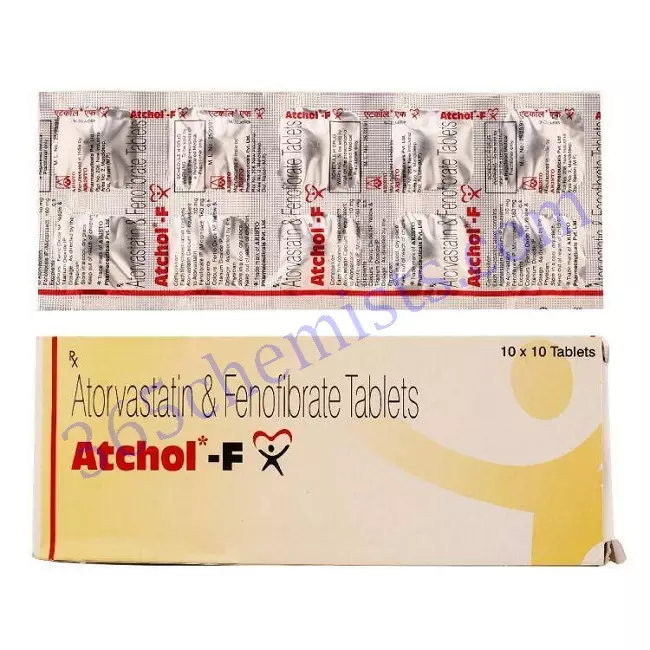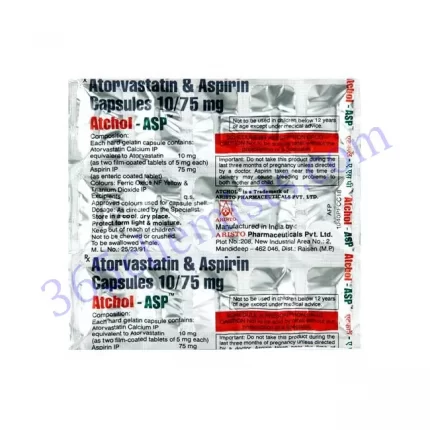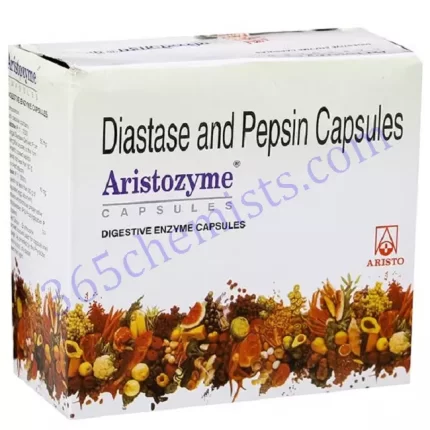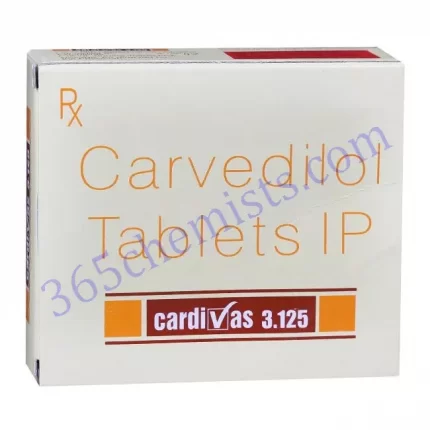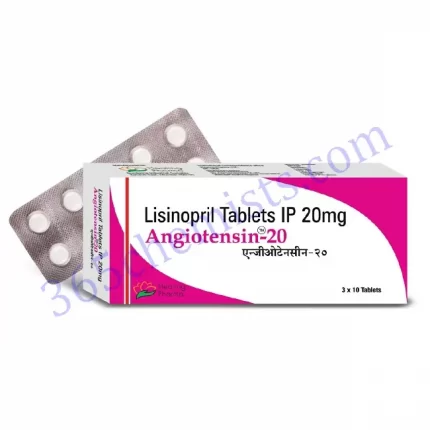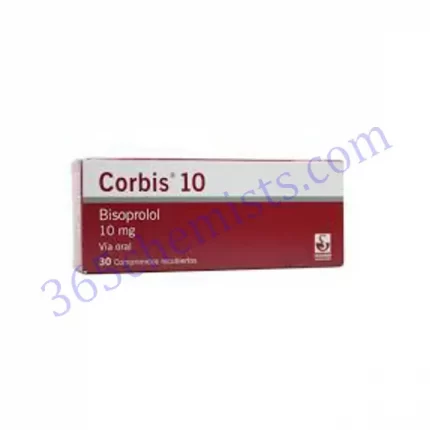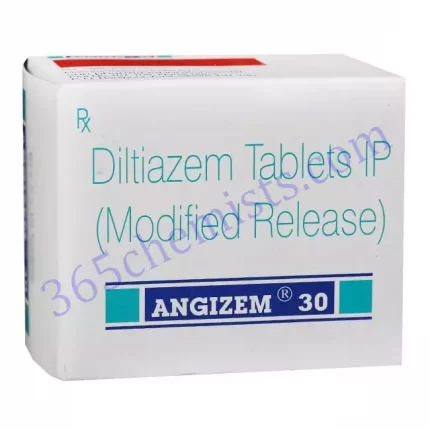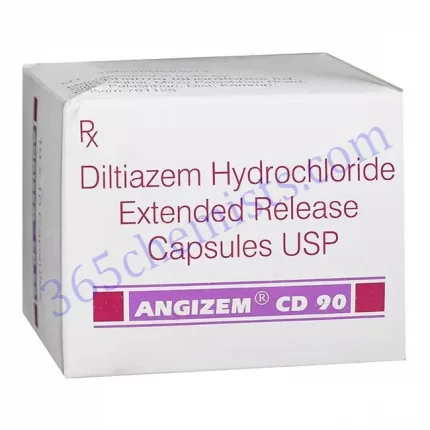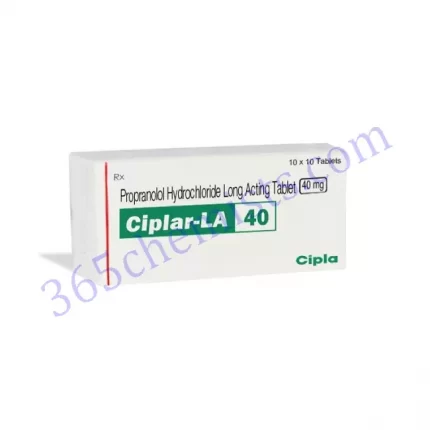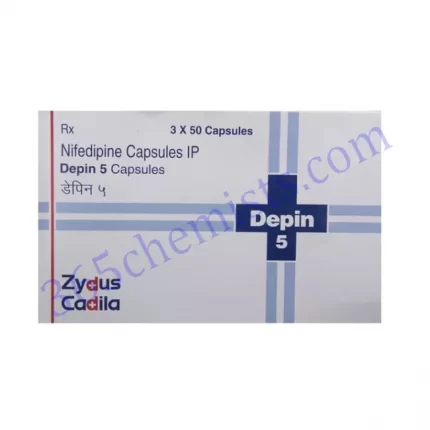Atchol-F Tablet: A Powerful Combination of Atorvastatin and Fenofibrate for Cardiovascular Health
The Atchol-F Tablet is a one-of-a-kind pharmaceutical formulation that combines the powerful advantages of atorvastatin and fenofibrate in a single pill. Patients who have been diagnosed with dyslipidemia, often known as abnormal lipid levels in the blood, are typically recommended to take this tablet. Atorvastatin, which is a medicine in the statin class, and fenofibrate, which is a drug in the fibrate class, operate together in a synergistic manner to effectively regulate lipid imbalances and lower the risk of cardiovascular illnesses.
Atorvastatin: Reducing Cholesterol Levels
The Atchol-F Tablet contains an active ingredient called atorvastatin, which is a member of a class of medications called statins. It is common knowledge that statins have the capacity to reduce the amount of cholesterol found in a person’s body. An enzyme known as HMG-CoA reductase, which is an essential component in the production of cholesterol, can be effectively blocked by the medication atorvastatin. Atorvastatin lowers the amount of LDL cholesterol in the body by inhibiting an enzyme that is responsible for the creation of cholesterol in the liver. LDL cholesterol is usually referred to as the “bad” cholesterol. Atorvastatin helps prevent the formation of atherosclerotic plaques and reduces the risk of coronary heart disease. It does this by efficiently decreasing LDL cholesterol.
Fenofibrate: Regulating Triglyceride Levels
The medicine fenofibrate, which is one of the active ingredients in the Atchol-F Tablet, is classified as a fibrate. The primary function of fibrates is to control the amount of triglycerides present in the blood. Fenofibrate is effective because it stimulates the activity of an enzyme known as lipoprotein lipase, which is responsible for the catabolization of triglycerides. Fenofibrate works to speed up the process of clearing triglycerides from the bloodstream by boosting the activity of a lipoprotein enzyme called lipoprotein lipase. In addition to this, research has shown that taking fenofibrate regularly can help increase levels of HDL cholesterol, also known as the “good” cholesterol. There is a correlation between lowering triglyceride levels and raising HDL cholesterol levels, and both of these factors contribute to an improvement in lipid profiles and a reduction in the risk of cardiovascular events.
Related Product
Atchol 40 Tablet
Atchol ASP Capsule
Atchol F Tablet
Synergistic Action: Enhanced Lipid Control
When compared to the administration of either of these medications singly, taking Atorvastatin and Fenofibrate together in the form of the Atchol-F Tablet has a number of advantages. The action of these two drugs together has a synergistic effect, which results in improved cholesterol control and a more all-encompassing approach to the management of dyslipidemia. Atorvastatin is generally directed towards the decrease of LDL cholesterol, whereas fenofibrate is primarily directed towards the management of triglycerides and the increase of HDL cholesterol. Patients who have complicated lipid abnormalities have access to a more effective treatment alternative in the form of the Atchol-F Tablet. This is because the medication targets numerous lipid parameters all at once.
Safety and Tolerability:
The Atchol-F Tablet has been put through extensive clinical testing to verify that it is safe and well tolerated by patients. The negative effects that can occur as a result of taking this medicine are typically modest and short-lived. Discomfort in the gastrointestinal tract, headache, muscle soreness, and abnormal liver function tests are some of the common adverse effects that may occur. On the other hand, major adverse events caused by Atchol-F Tablet are quite uncommon, and its advantages typically surpass its potential drawbacks. Before beginning therapy with Atchol-F Tablet, patients who have a history of liver illness, kidney failure, or gallbladder disease should exercise caution and see their healthcare professional to determine the best course of action. It is crucial to mention this precautionary measure.
Dosage and Administration:
It is possible for the recommended dosage of Atchol-F Tablet to change depending on the individual lipid profile of the patient as well as their current medical condition. It is of the utmost importance to adhere to the recommended dosage schedule and follow the directions given by the healthcare practitioner. In most cases, one pill per day is advised to be taken orally, either with or without meals. This is the suggested starting dose. The individual’s response to treatment and the monitoring of their lipid profile will determine whether or not the dosage needs to be modified. It is vital to schedule routine follow-up appointments with the healthcare practitioner in order to assess the efficacy of the treatment and ensure that optimal cholesterol management is maintained.
Monitoring and Follow-Up:
While you are using Atchol-F Tablet, it is essential to have your lipid levels checked on a regular basis so that you can evaluate the efficacy of the treatment and make any required adjustments. The levels of total cholesterol, LDL cholesterol, HDL cholesterol, and triglycerides can be evaluated with the help of lipid profile tests, which medical professionals can prescribe for their patients. These tests assist in determining the patient’s response to treatment and aid subsequent decision-making regarding management. It is essential to attend follow-up appointments as per the timetable in order to address any issues, deal with the possibility of experiencing adverse effects, and make certain that optimal lipid control is achieved.
Lifestyle Modifications:
Even though Atchol-F Tablet is a successful drug for treating dyslipidemia, it is essential to keep in mind that the patient should also make changes to their lifestyle in order to achieve the best results from taking the medication. Modifications to one’s way of life can have a major impact on one’s lipid profile and the risk of developing cardiovascular disease. This may involve adopting a diet that is well-balanced and rich in nutrients, participating in regular physical activity, preserving a healthy weight, and avoiding the use of tobacco products. Individuals may receive individualised suggestions from their healthcare practitioners to assist them in making suitable adjustments to their lifestyle.
Conclusion:
The Atchol-F Tablet, which contains 10 milligrammes of atorvastatin and 160 milligrammes of fenofibrate, provides a potent combination for the management of dyslipidemia and the reduction of the risk of cardiovascular illnesses. Atchol-F Tablet offers a complete strategy for lipid control because it simultaneously attacks multiple facets of lipid disorders. Before beginning treatment with Atchol-F Tablet, it is imperative to discuss the matter with a qualified medical professional in order to ascertain the correct dosage and make certain that the individual is safe. Atchol-F Tablet, with its well-established safety profile and well-established efficacy, plays a crucial role in improving lipid profiles and enhancing cardiovascular health in patients who have dyslipidemia.

